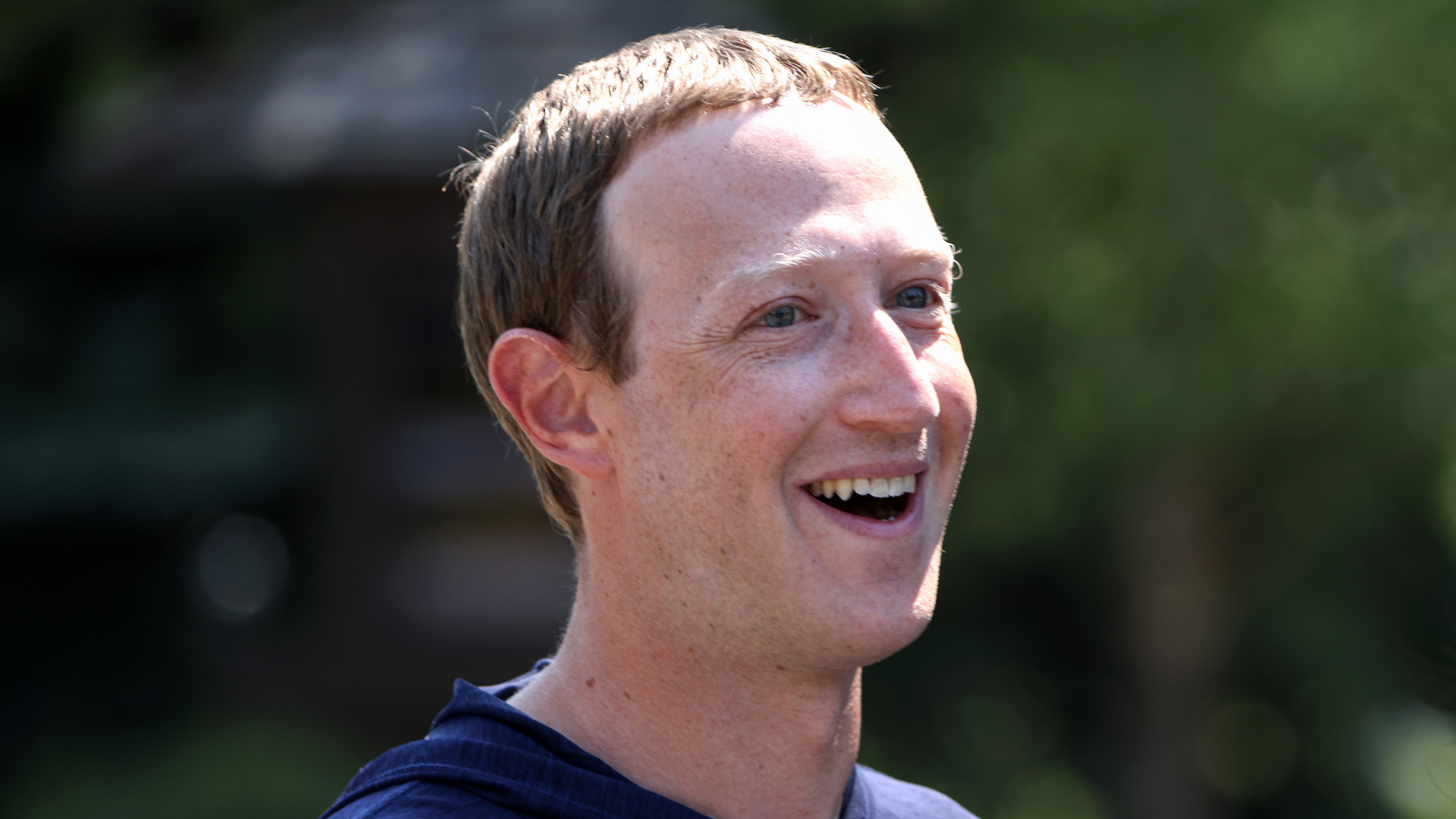Is Facebook about to change its name?
Branding shift could reflect ambition to become ‘metaverse company’

A free daily email with the biggest news stories of the day – and the best features from TheWeek.com
You are now subscribed
Your newsletter sign-up was successful
Facebook is planning to make a major break with its past by changing its name next week, as part of a major rebrand.
The rebranding could be unveiled by CEO Mark Zuckerberg at the company’s annual Connect conference on 28 October in a move that the social media giant hopes will signal its “ambition to be known for more than social media and all the ills that entail”, reported The Verge.
But the change could come “sooner”, said the tech site, citing a source with “direct knowledge of the matter”.
The Week
Escape your echo chamber. Get the facts behind the news, plus analysis from multiple perspectives.

Sign up for The Week's Free Newsletters
From our morning news briefing to a weekly Good News Newsletter, get the best of The Week delivered directly to your inbox.
From our morning news briefing to a weekly Good News Newsletter, get the best of The Week delivered directly to your inbox.
The name change is said to be a “closely guarded secret”, according to The Verge, and is not widely known about “even among its full senior leadership.”
The rebrand would see Facebook change the name of its holding company, rather than the name of its globally famous social media platform known internally by company staff as the “big blue app”, said The Guardian.
The social media platform would become “one of many products under a parent company overseeing groups like Instagram, WhatsApp, Oculus” and is part of a plan for the company to shift its focus to building what is known as the “metaverse”, The Verge said.
The metaverse is loosely defined as a shared virtual world where people can interact with each other without being in the same physical space.
A free daily email with the biggest news stories of the day – and the best features from TheWeek.com
Back in July, Zuckerberg told The Verge of his plans to transition that company away from being seen “primarily as a social media company” and towards being known as “a metaverse company”.
Building the “metaverse” has become the “cornerstone of a new growth strategy” for the $1tn company, with the name change possibly linked to the development of the company’s virtual-reality platforms Horizon Worlds and Horizon Workrooms, said The Guardian.
The virtual-reality platforms are as of yet unreleased, but Facebook’s Vice-President of Global Affairs Nick Clegg has said “he now takes his Monday morning meetings in the metaverse with a virtual table and whiteboard”.
While Facebook may be positioning the name change as part of a “desire to be seen as more than a social media company” we all know the “the real reason” said Matt Novak, a senior writer at Gizmodo. “The Facebook brand is absolutely toxic.”
Its brand image has “struggled” as it goes from crisis to crisis, including the Cambridge Analytica “debacle” of 2016, and most recently the damning testimony of former Facebook employee Frances Haugen to the US senate, which revealed “what’s good for Facebook tends to be very bad for society”, he added.
Facebook’s rebranding move “is not without precedent” added The Guardian.
In 2015, Google rebranded itself as Alphabet, “reflecting its determination to break into new fields in tech such as self-driving cars”. And fellow social media platform Snapchat changed its name to Snap Inc in 2016, the same year it released its first pair of Spectacles, a wearable recording device.